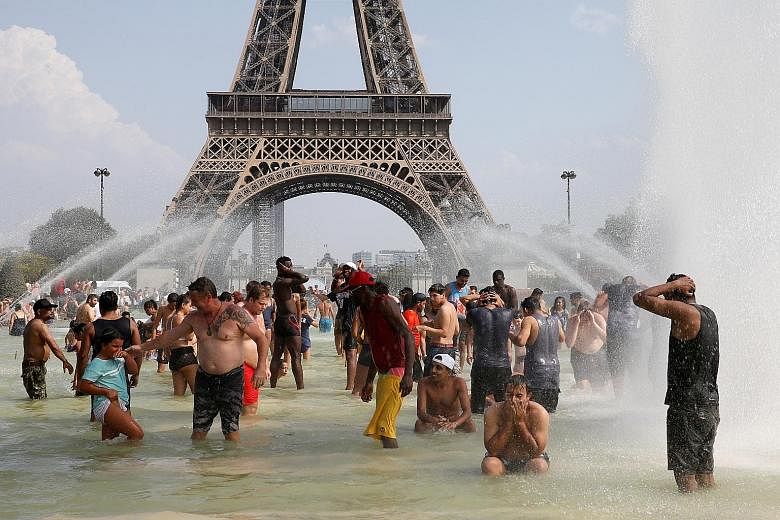On the southern outskirts of Paris, a cemetery holds the bodies of the city's unclaimed dead. Until recently, there lay a hundred whom some consider to be the first victims of global climate change. They were mostly elderly and poor, the forgotten people of the worst weather disaster in contemporary European history: The heatwave of August 2003, which killed nearly 15,000 in France alone and thousands more across the continent.
Experts have predicted that a changing climate will bring more frequent, longer-lasting and more intense heatwaves to Europe - a prediction that appears to be coming true rapidly. Less than a month after Western Europe suffered a brutal heatwave, France, Britain, Belgium and the Netherlands again face suffocating temperatures, all in countries where few homes are air-conditioned. Highs of almost 109F (42.7C) in Paris and 98 in London on Thursday broke records in those cities. This is also the fifth successive summer of extreme heat in France.
Already a subscriber? Log in
Read the full story and more at $9.90/month
Get exclusive reports and insights with more than 500 subscriber-only articles every month
ST One Digital
$9.90/month
No contract
ST app access on 1 mobile device
Unlock these benefits
All subscriber-only content on ST app and straitstimes.com
Easy access any time via ST app on 1 mobile device
E-paper with 2-week archive so you won't miss out on content that matters to you

